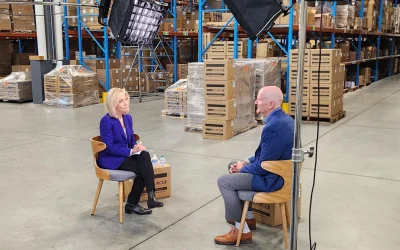Covid 19 blindsided the global medical supply chain and continues to pose business concerns and challenges. At the height of this crisis, US vulnerability due to dependence on Asian markets became uncomfortably clear with the inability to get the basic supplies needed to remain safe during a pandemic. While domestic manufacturers were incentivized to switch over their operations to produce PPE, American companies at large were devising strategies to prevent the pitfalls of alarming, indefinite supply chain disruptions.
These strategies have been developed with the following considerations:
Resilience: Expanding global footprint to withstand external threats and maintain quality systems.
Agility: Developing the capacity to pivot in response to market conditions.
Sustainability: Advancing business objectives that combat climate change and protect resources.
As a result, nearshoring is gaining popularity with many American and European companies that are moving manufacturing to Latin America (LATAM) and the Caribbean. Among the many options for nearshoring in the Americas, there are five countries currently commanding attention in performance and capabilities: Mexico, Colombia, Panama, Dominican Republic, and Costa Rica. While each of these countries has unique advantages, they all stand to provide speed to market, intellectual property protection, and timely collaboration.
MedSource Labs has chosen a manufacturing partner in LATAM for many of the above-stated reasons but ultimately chose Colombia because of the country’s sustainability initiatives and the shared values of a people-first perspective when it comes to employment and working conditions.
Although MedSource Labs and many other companies still hold working relationships with China and other Asian-based manufacturers, the American government could make the move to LATAM or the Caribbean more appealing with the introduction of the Western Hemisphere Nearshoring Act.
On April 22, 2022, Rep. Mark Green (R-TN) introduced the Western Hemisphere Nearshoring Act, a bill aimed at decreasing dependency on the People’s Republic of China and decreasing migration due to lost regional economic opportunities. This bill suggests the use of the Development Corporation Funds to finance the moving expenses associated with companies taking their business out of the People’s Republic of China and bringing it to LATAM or the Caribbean. The bill also proposes duty-free treatment for goods and services of companies moving from the People’s Republic of China to LATAM or the Caribbean. These are certainly strong incentives for American companies, but LATAM and the Caribbean would also benefit from the bill by gaining economic stability.
In addition to helping people advance and build a better, more robust life in the western hemisphere, nearshoring offers great potential in addressing negative effects of industry and transportation on the climate.
REnewables LAtin American and the Caribbean, or RELAC, is a regional initiative that has 15 member countries that share a collective goal of reaching 70% renewable energy penetration by 2030. With the common objective of accelerating the carbon neutrality of Latin America and the Caribbean, they are gaining support from countries like the United States that share these ideals.
Although there is a long way to go in building out the infrastructure of a new global supply chain, the potential benefits are worth the investment for companies, consumers, and the planet alike.


